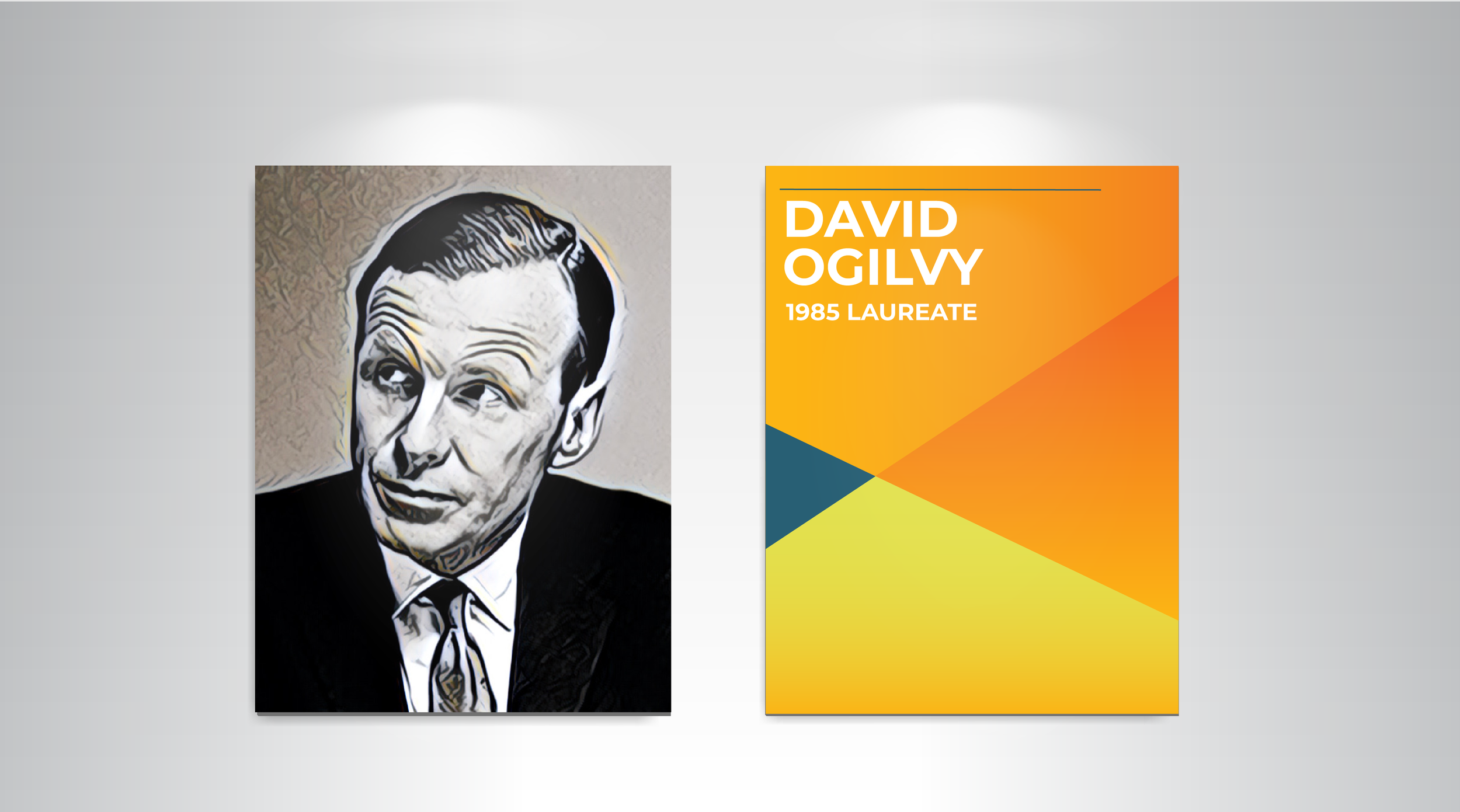
Widely hailed as the father of advertising, David Ogilvy held jobs in a hotel restaurant, wartime intelligence, research, and even tried his hand at farming in rural Pennsylvania, USA, before he made advertising history.
-
1911
Born (United Kingdom)
-
1938
Hones research skills at the Audience Research Institute
-
1963
Authors Confessions of an Advertising Man, which becomes an international bestseller.
-
1979
Inducted into the Global Business Hall of Fame
-
1985
Pens Ogily on Advertising, now considered the bible of marketing
It’s the rare professional who starts his or her career in one field and remains in it a lifetime. Advertising magnate David Ogilvy is no exception. Born in 1911 in Surrey, England, David was the son of a classics scholar, but his family had fallen on hard times during the economic downturn of the 1920s. He attended Fettes College in Edinburgh, Scotland, and Christ Church, Oxford on scholarships, but didn’t receive a degree from either institution. Instead, he pursued an apprenticeship as a chef in a hotel in Paris, followed by a stint as a door-to-door cooking-stove salesman. Soon, he had created The Theory and Practice of Selling the Aga Cooker, an instruction manual for other salesmen on the best methods to sell the stove that would be hailed decades later by Fortune magazine as “the best sales manual ever written.” His older brother Francis took the manual to the manager of the advertising agency in which he worked, Mather & Crowther. Executives were so impressed with David’s work that they offered him a job as an account executive.
In 1938, David persuaded the agency to send him to the U.S., where he worked with American pollster George Gallup’s Audience Research Institute for one year. His time in advertising and at the Audience Research Institute made him particularly adept at understanding human behavior, which made him an excellent resource during wartime, so during World War II, David worked as a British intelligence officer, conducting analysis and making recommendations on issues of security and diplomacy.
After the war, David purchased land in Lancaster, Pennsylvania, USA, and made an attempt at farming. Before long, he and his wife moved to New York City, and in 1948, with the financial backing of Mather & Crowther, David founded the advertising agency Ogilvy, Benson, and Mather. They started out with British clients, including Wedgwood China and Rolls-Royce, but soon gained the attention of American businesses, including General Foods and American Express. As an advertising executive, Ogilvy pioneered the concept of branding, which links a product with a name and aims to create customer loyalty. He helmed campaigns for Dove soap, Schweppes, Shell oil, and countless others.
By 1963, Ogilvy was widely hailed as a branding genius and his Confessions of an Advertising Man became an international bestseller, published in 14 languages. In 1966, Ogilvy & Mather became the first advertising agency to be publicly traded. David officially retired in the 1973 and was inducted into the Global Business Hall of Fame in 1979. He briefly came out of retirement in the 1980s to helm the agency’s new office in India, and then published Ogilvy on Advertising in 1985. Today, the agency exists under one name—Ogvily—with 132 offices in 83 countries around the world.
“If each of us hires people who are smaller than we are, we shall become a company of dwarfs. But if each of us hires people who are bigger than we are, we shall become a company of giants.”
A Global Force for Good
David chaired the Public Participation Committee for Lincoln Center in Manhattan, served as a member of the Metropolitan Museum of Art’s 100th Anniversary Committee, was appointed Chairman of the United Negro College Fund in 1968, and elected trustee on the Executive Council of the World Wildlife Fund in 1975.




